Holidaymakers queue for sun in dark times
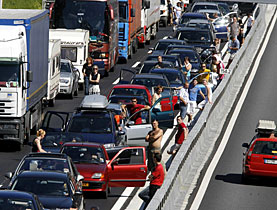
Two months of motoring misery start on Swiss roads this weekend, with the summer holidays responsible for long queues and short tempers.
As Swiss tourists continue to feel the pinch, the trend is towards taking closer-to-home family trips around the Mediterranean – often cruises – compared with the short city breaks seen in the first, more uncertain, half of the year.
Last year sun-seekers travelling south via the Gotthard tunnel found themselves caught up in a ten-kilometre tailback and an almost three-hour wait. The Viasuisse traffic service doesn’t expect things to be different this year.
“If one has the time, the best thing is to travel before or after the traffic jams,” Marcel Moretto from Viasuisse advised swissinfo.ch.
Until mid-September weekend jams can be expected in particular on the north-south axis. From the beginning of August, the southbound delays will start to turn around and go in the other direction.
Border crossings often end up as bottlenecks, particularly those down in Ticino at Chiasso-Brogeda and Como-Grandate, up north at Basel-Weil, and on the French border at Geneva-Bardonnex.
Within Switzerland, the heaviest traffic is expected on the motorways between Zurich and Bern, and Lausanne and Morges. Viasuisse also expects the bypasses around Bern, Lausanne and Zurich to be blocked.
As for alternatives, Moretto stresses that your best bet as a driver is simply to avoid driving at peak times.
“It always depends of course where you’re going – getting from Zurich to Bern is less problematic than trying to get from Basel to Chiasso,” he said.
And what do you need if you find yourself at the wrong end of a 12-km tailback? “Liquids and patience.”
Price-sensitive
Switzerland has not escaped the global economic crisis, last month reporting a year-on-year drop in GDP of 2.4 per cent, the sharpest contraction since 1976.
In addition economists predict that some 5.5 per cent of the workforce could be out of gainful employment by the end of 2010.
But perhaps people need a bit of sunshine in dark times?
“People are hesitating. They’re more price-sensitive. They’re waiting a bit longer to see if they still have a job the following week,” Andrea Müller from Swiss tour operator Kuoni told swissinfo.ch.
“Whereas last year some people had already booked their summer holiday in January or March, this year it was more like May or even June,” she said.
“But what is really popular at the moment are cruises. Not only for elderly people but also for younger ones, especially families, because some companies let kids under 18 travel free if they stay in the same cabin as their parents.”
City breaks
Müller added that although a good dollar exchange rate – and the Obama effect – had made the United States very popular, people had been favouring closer-to-home destinations around the Mediterranean – such as Spain and Egypt – over the Far East and for example Thailand.
Short city trips were very popular in the first half of the year. “A lot of hotels are offering packages like three nights for the price of two, or a free massage and glass of champagne on arrival. They’re quite creative,” she said.
“We noticed that sometimes people decided to spontaneously take a Friday off, go to a nice hotel and do some wellness – and they were away from work for just one day.”
Now however this unused holiday is starting to pile up. “People are now starting to book longer trips further away for the autumn season because they still have five weeks of vacation and they now have a clearer idea of their situation.”
Thomas Stephens, swissinfo.ch
In May a research consultancy said the number of hotel overnight stays in Switzerland was set to drop by 7.2 per cent this summer, the steepest fall for 27 years.
BAK Basel Economics found that the drop over the current tourism year as a whole would be the greatest in the entire post-war period.
However, the decline follows a period of growth. So although the winter season which has just ended dropped six per cent on the previous year, it nevertheless registered the second-largest number of overnight stays ever: 15.5 million.
It expects the decline to continue in 2010, although less steeply. Moderate growth can be expected again from 2011.
The umbrella organisation Switzerland Tourism has already been granted SFr12 million ($11.1 million) by the government to help it face the financial crisis. The money is being spent promoting the country to its nearest neighbours and at home, since tourist experts recognise that people travel less far during times of economic crisis.

In compliance with the JTI standards
More: SWI swissinfo.ch certified by the Journalism Trust Initiative

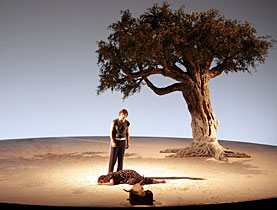
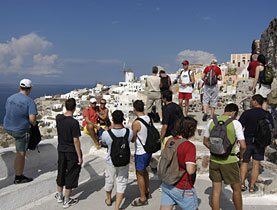
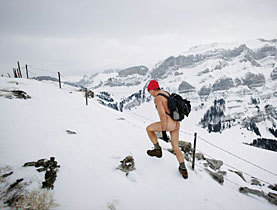
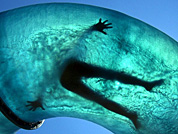
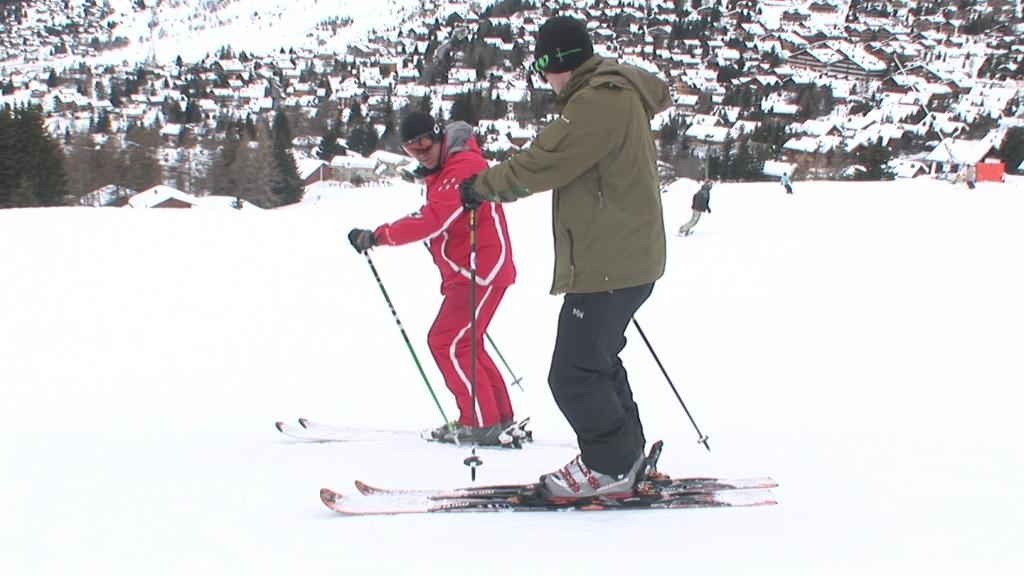
You can find an overview of ongoing debates with our journalists here. Please join us!
If you want to start a conversation about a topic raised in this article or want to report factual errors, email us at english@swissinfo.ch.